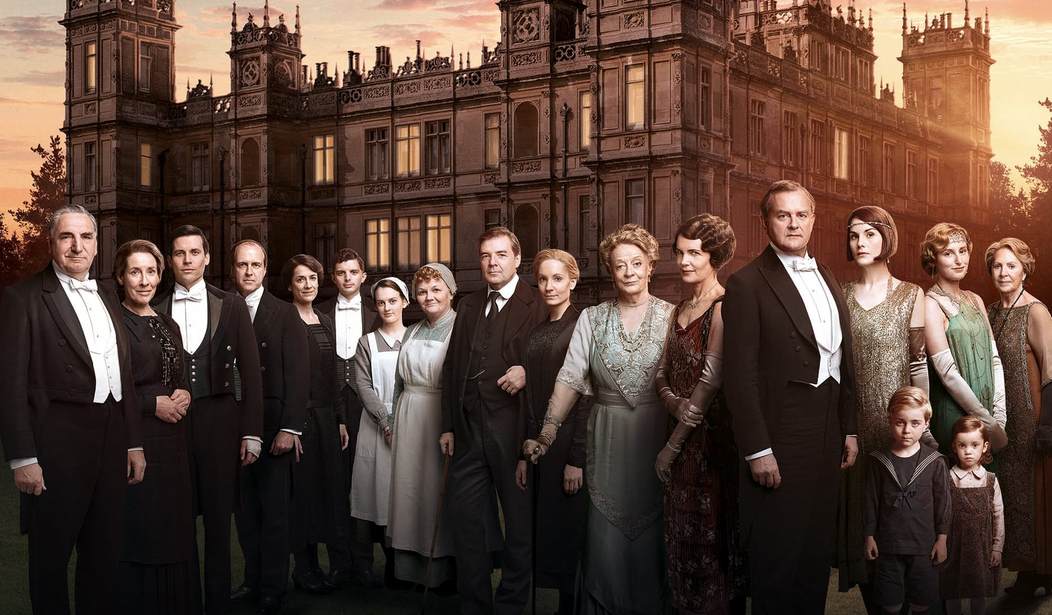Every week my grandfather would watch Gunsmoke religiously. “When the television was on,” my mother would relate, “you knew not to bother him, especially when Matt Dillon was on the screen.” The show lasted 20 years, a record only recently broken by The Simpsons. When it began, my grandfather was a married father of three young children. By the end of it, he was a grandfather whose youngest son, now married, had recently returned home from Vietnam. My grandfather had gone through moves, job changes, children, cars, hobbies, trends and presidential assassinations, all with U.S. Marshall Matt Dillon at his side. The fictional constant must have acted as some kind of anchor in an ever-changing world.
Of course, I never realized that until the last season of Downton Abbey premiered on PBS this past January. Suddenly I remembered sitting down in front of the TV, excited to introduce my newly minted husband to the world of Masterpiece Theatre. Although he worked for a PBS affiliate at the time, he’d never actually watched the programming he helped put on the air. Instantly he was hooked and I was amused. “Downton is his man soap [opera],” I would explain to friends with a laugh. Little did I realize the characters on Downton would follow us through unemployment, multiple job changes, a potential move, the remodeling of two bathrooms, a long-overdue honeymoon, one major trip overseas, deaths in the family, bar mitzvahs, our first pregnancy and the welcoming of our first child. I didn’t think we’d been married all that long until I realized Downton was going off the air.
Television is often valued as an easily accessible form of escapism. Many fail to realize that the characters presented on the small screen are uniquely capable of being woven into the very depths of our psyche in incredibly personal ways. Like friends or even family members, we see television characters regularly enough that we miss them in the off season. And if we find their stories compelling enough, we feel their loss when they leave the air. You don’t need to be a super fan attending a convention, writing fanfiction or petitioning the network for a show’s return to feel connected to a television show. Sometimes you just need to hit into it at the right time to hear it speak your name.
Even the casual Downton viewer could not have predicted that the British Lord’s three daughters would end up where they have. No one saw the beautiful, outspoken Sybil dying. Mary marrying a race car driver? Please. And “woe is me” Edith, whose fate has been hinted at, actually winding up happy in the end? But that’s the way life goes, isn’t it? We make plans, God laughs. My husband lost his job and William the heroic footman died. I worked three jobs while the Granthams struggled to keep Downton. Edith regains custody of her daughter and I get pregnant. Rose marries a Jew and we, the Goldbergs, rejoice!
Not every moment in Downton was a mirror of my own; nevertheless, the emotions were often the same. That’s how good television works. The characters join you in the ebbing flow of the vicissitudes of life. Their journeys are a reminder that while we might not be thrilled with the way things are going at the moment, there are always better days ahead. That is why we keep watching them and why their absence is often keenly felt.
Rumor has it that the series is set to end on a good note. I would expect nothing less from the jolly Julian Fellowes, and I thank him for it. After all, if Edith of all people can manage to scrape some happiness out of life, there must be hope for us plebians yet.
Image via PBS.









Join the conversation as a VIP Member